Antoine Mordican awarded cannabis cultivator license
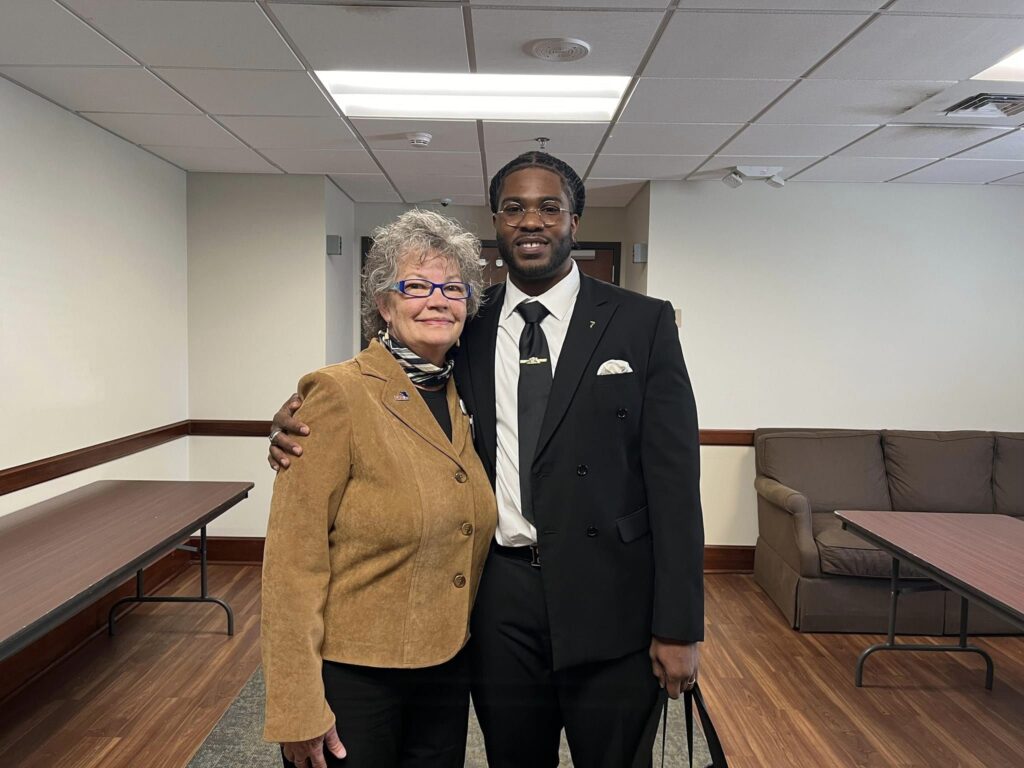
On Friday, the Alabama Medical Cannabis Commission (AMCC) awarded medical cannabis licenses to 21 business entities across the state. One of those to receive an award was Antoine Mordican with Native Black Cultivation. Mordican is an Alabama hemp farmer who was featured previously in Alabama Today. “I am the CEO of Native Black Cultivation,” Mordican told the Commission in his presentation on Monday, November 27. “I am a farmer, an engineer, and an advocate. I spoke in this very room (in 2021) to the Health Committee for passage of the medical cannabis bill.” “I am originally from the west side of Chicago. I came down here in 2009 for an education,” Mordican said. “I have been farming since 2020 growing hemp.” “I and my ownership team are all residents of Alabama,” Mordican continued. “We have the skills to cultivate a quality product for the state of Alabama.” In the previous two rounds of award applications, Native Black Cultivation was denied a permit largely because Mordican had been a resident of Alabama for just 14 years rather than the 15 years necessary to achieve residency. Mordican addressed this by giving his two partners, who have lived in the state for decades, a larger ownership stake so that the company fits the AMCC definition of Alabamian-owned. “If you look at the Alabama Medical Cannabis website, we have overwhelming public support for our application,” Mordican said. “It is critical that we have minority participation in the state. We will be an asset for the state and the people of Alabama.” The Commission could have awarded a maximum of twelve cultivator licenses, but they only awarded seven. The Commission voted to give cultivator licenses to: • CRC of Alabama, LLC • Greenway Botanicals, LLC • Gulf Shore Remedies, LLC • Native Black Cultivation • Creek Leaf Wellness Inc. • Twisted Herb Cultivation, LLC • I AM FARMS Four business entities were awarded medical cannabis processor licenses. These are: • Organic Harvest Lab, LLC • Coosa Medical Manufacturing • 1819 Labs, LLC • Jasper Development Group Inc. Four business entities were awarded dispensary licenses. These are: • CCS of Alabama, LLC • GP6 Wellness, LLC • Capitol Medical, LLC • RJK Holdings AL, LLC Four business entities were awarded secure transporter licenses. These are: • Alabama Secure Transport, LLC • Tyler Van Lines, LLC • Pick Up My Things • International Communication, LLC Certus Laboratories was awarded the only state testing laboratory license. The Commission rescinded two previous rounds of awards in June and August to settle lawsuits from failed applicants. “The presentations we received from applicants this week were insightful and allowed Commission members to ask questions about the contents and merits of their application,” explained AMCC Chairman Rex Vaughn. “We received applications and presentations from applicants who would make terrific licensees, which made our job of selecting a limited number of them challenging. However, I trust this Commission’s wisdom and discretion in selecting the best applicants to serve as licensees in Alabama’s newest industry.” Applicants who were awarded a license have 14 days to pay the license fee. Applicants who were denied a license have 14 days to request an investigative hearing before the Commission for reconsideration of said denial. Beginning on Tuesday, the Commission will hear presentations from applicants seeking the integrated facility license. An integrated facility license allows the holder to cultivate, process, transport, and dispense medical cannabis. The number of integrator licenses is limited to a maximum of five. Those awards will be made on December 12. To connect with the author of this story or to comment, email brandonmreporter@gmail.com.
Black farmer Antoine Mordican pleads for cannabis cultivator license

On Monday, the Alabama Medical Cannabis Commission (AMCC) heard presentations from farmers seeking to win a cannabis cultivator award. One of those was Antoine Mordican with Native Black Cultivation. Mordican is an Alabama hemp farmer seeking a license from the AMCC. “I am the CEO of Native Black Cultivation,” Mordican told the Commission. “I am a farmer, an engineer, and an advocate. I spoke in this very room (in 2021) to the Health Committee for passage of the medical cannabis bill.” “This Commission is diverse,” Mordican said, “25% of the licenses go to minorities.” The legislation requires that 25% of licenses go to minorities – a point that Mordican argued for when it passed the Legislature two and a half years ago. “I am originally from the west side of Chicago. I came down here in 2009 for an education,” Mordican said. “I have been farming since 2020 growing hemp.” “I and my ownership team are all residents of Alabama,” Mordican continued. “We have the skills to cultivate a quality product for the state of Alabama.” “I am a true Alabama-owned company,” Mordican said, alluding to rumors that some applicants are only frontmen for out-of-state marijuana companies. “My company is truly minority-owned. I am the CEO. I do not answer to anyone in my company. That is not true for some of the other applicants.” “Hopefully we will be considered for a license on Friday, December 1,” Mordican said. In the previous two rounds of award applications, Native Black Cultivation was denied a permit. Mordican explained that the AMCC cited him for not meeting its Alabama residency requirements. The AMCC defines an Alabama resident as someone who has lived in the state for 15 years. Mordican began his studies at Alabama A&M in 2009. He has resided in Alabama just a few months over 14 years; thus, he did not qualify as an Alabama entity. Mordican explained that he has addressed that by naming his two partners (both of whom have lived in the state for decades) so that the company fits the AMCC definition of Alabamian owned. “If you look at the Alabama Medical Cannabis website we have overwhelming public support for our application,” Mordican said. “The people of Alabama have spoken. I think you should take that into consideration.” “It is critical that we have minority participation in the state,” Mordican said. “We will be an asset for the state and the people of Alabama.” Marty Schleper, founder and president of Alabama Cannabis Coalition, publicly supported Mordican. Schleper wrote on Facebook, “What an honor and a privilege to be in Room 200 of the Alabama House and hear and see the presentation of Antoine Mordican, a husband and father, and he so deserves a medical Cannabis license in Alabama. Antoine is humble and gracious, he has always impressed me. I am so proud of him and pray that God holds him in the palm of His hand.” Mordican also urged that HBCUs (Historically Black Colleges and Universities) be involved in the marijuana program. “Alabama A&M is part of the hemp program,” Mordican said. “Alabama State has been part of the hemp program.” Mordican explained that his company has two facilities – a small one that he can put into cultivation by the end of the month and a larger one that he will build. Mordican will utilize hydroponics in his marijuana grow facility. “I have been working on this for over a decade,” Mordican said. “It started as a research paper in my first year at Alabama A&M. Hydroponics was the way to go. At Native Black Farms, we grow indoors. Everything is grown hydroponically. I have a recirculation system to prevent there from being any waste.” The AMCC is expected to vote on the cultivator awards on Friday. The previous two rounds of awards were rescinded after failed applicants filed lawsuits objecting to the process, including the scoring of the applications.’ There is a maximum of twelve cultivator licenses that the Commission can award and just twelve applicants. Despite this, Native Black Cultivation was denied in both previous rounds of awards. The Commission is expected to also vote on the state testing laboratory, marijuana processor, and secure transporter licenses on Friday. Next week, the Commission will hear presentations from applicants for integrated facility licenses. Those license awards will not be made until December 12. To connect with the author of this story or to comment, email brandonmreporter@gmail.com.
Alabama medical cannabis licensing process reset: All 90 applicants back in the running
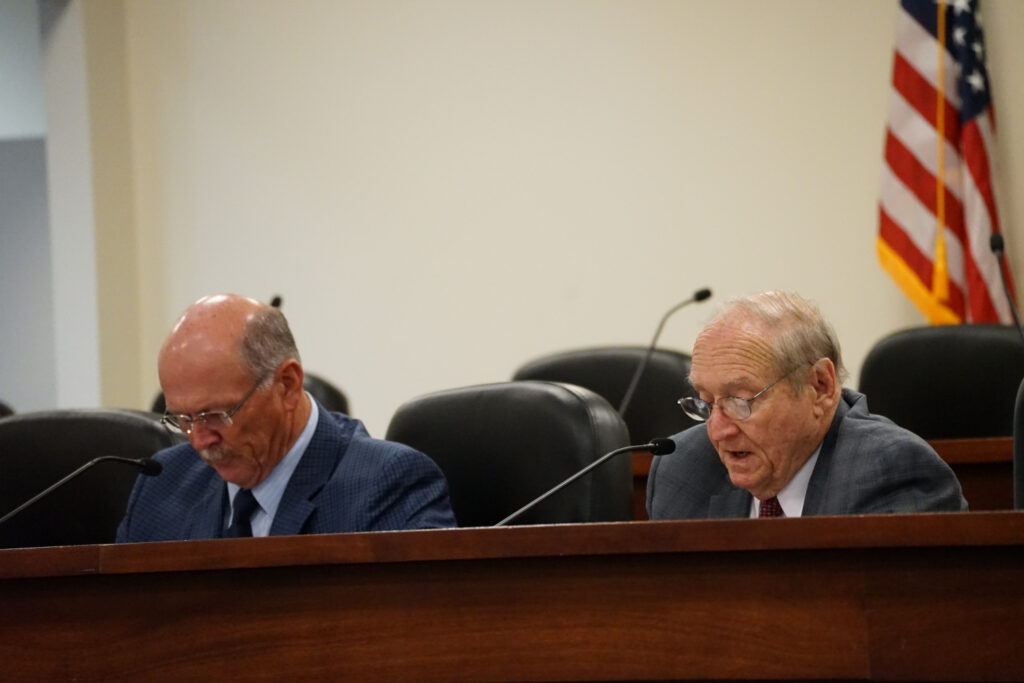
Alander Rocha, Alabama Reflector All 90 applicants for commercial medical cannabis licenses are back in the running after the Alabama Medical Cannabis Commission (AMCC) Thursday reset the license process. The AMCC rescinded all awarded licenses and denials from an Aug. 10 meeting, setting the stage for a third round of license grants under rules adopted at a commission meeting on Oct. 12. “We decided to start all over as far as the award,” said Rex Vaughn, the chair of the AMCC, after the meeting. “It doesn’t matter if [uncontested in court] or not, they’ll all be taken into consideration after the presentations. The new procedures will allow commissioners to use the previous scores to decide on awards, but Vaughn, speaking from a prepared statement during the meeting Thursday, repeatedly stated the commissioners had full discretion “when evaluating the suitability of all 90 applicants.” The new rules also give applicants an opportunity to contest deficiencies identified in their application and their score results. Presentations will be open to the public. Applicants can also respond to preliminary pass/fail and submit application material that were not previously filed due to the file size limitation. Presentation Schedule: Nov. 27 – Cultivator and State Testing Laboratory Applicants Nov. 28 – Secure Transporter and Processor Applicants Nov. 29 – Dispensary Applicants Dec. 4 – 8 – Integrated Facility Applicants Will Somerville, an attorney representing Alabama Always, a company that has sued the commission after being denied licenses in previous rounds, sent a letter to the commission Wednesday urging it to throw out the scores provided by the University of South Alabama earlier this year. “If the scores remain, or if they are considered in any way, the scores will be used by applicants who are not awarded a license to attack the award winners,” Somerville wrote. “The reality is that this process will, regrettably, be subject to unending litigation if the Commission continues to use the scores.” After the Thursday meeting, Vaughn said that he felt confident that the licensing process is in better shape now that issues have been addressed. Litigation, he said, will be part of the commission’s work. “Litigation will be ongoing. We know that. That’s just going to be part of our lives on the commission for the foreseeable future,” Vaughn said. Vaughn also addressed how the commission will conduct site inspections, a point of contention with companies that have argued in court that the AMCC did not inspect sites before awarding licenses. Under state law, inspections must be completed before licenses are issued, but the commission is not required to inspect them before. Vaughn said that inspections will occur between the time licenses are awarded and when they are issued, about a month’s time. “We have inspectors lined up, investigators ready to do their work, but we have to get to the point of issuing the license,” he said. The commission will begin accepting public comments for or against particular applicants on Friday. Comments must be made electronically through the AMCC website by Nov. 26. Antoine Mordican, CEO of Native Black Cultivation, a hemp company that wants to move into medical cannabis cultivation, said that he’s happy to learn the direction the commission is going in. The commission should have the final say on how they award the licenses, not a third-party evaluator. “For them to be able to pull everything back and to be able to look at everything again — even with the potential of them not considering the license —because ultimately the commission has the last final say, in which that should always have been the case,” Mordican said. Aretha Dix, a former Alabama Medical Cannabis Study Commission member who was denied a dispensary license, said she was excited to show the commission “what she stands for.” “I feel like it’s now fair. It’s officially fair,” she said. “I think it’s how it should have been initially, but I’m excited that we get a chance to say ‘Hey, this is who we are.’” She said that she’s been patient through the process, and she understands that before patients can have something in place, the process had to be ironed out first. But she didn’t expect her application to be scored as it was. “I knew my intentions. I came in with honesty and transparency. Most importantly, with the desire to really make a difference and make a change for the citizens of the state,” she said. Alabama Reflector is part of States Newsroom, a network of news bureaus supported by grants and a coalition of donors as a 501c(3) public charity. Follow Alabama Reflector on Facebook and Twitter.
Cannabis licenses might be issued in coming weeks
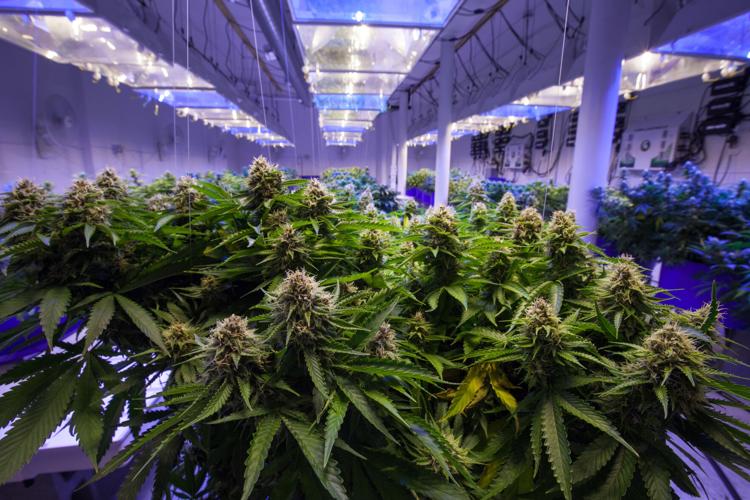
There is currently a temporary restraining order (TRO) on the Alabama Medical Cannabis Commission (AMCC) issuing medical cannabis licenses. However, that could change in the coming days for some license categories. On Wednesday, Montgomery Circuit Judge James Anderson heard arguments from attorneys for both the AMCC and the plaintiffs suing the Commission over cannabis license awards made in August. The state is issuing six categories of medical marijuana licenses: grower or cultivator (the term is used synonymously by parties involved), processor, transporter, laboratory, dispensary, and integrated facility. An integrator can grow, process, transport, and dispense cannabis. Applicants who were denied permits for processor, dispensary, and integrator have all filed suit against the AMCC, arguing, for various reasons, that their application was wrongfully denied and the Commission violated the state open meetings law in its August awards meeting. Those lawsuits have all been consolidated into one case challenging those award results. Anderson placed a temporary restraining order on the AMCC issuing any licenses in August and a stay on further AMCC action while the court considers the plaintiffs’ arguments. Under the AMCC’s current proposal before the court, the Commission will rescind the license awards for integrator, dispensary, and processor at its October 26 meeting. Meanwhile, the Commission would be free to issue the August awards for growers, transporters, and laboratories. Alabama Today asked AMCC Executive Director John McMillan if there was a possibility that some of those growers could build their facility, plant their marijuana crop, harvest that first crop, and then have nowhere to legally process it and no market for it to sell it as a grower’s license does not allow the grower to sell it to the public. “Hypothetically,” McMillan answered. Alabama Always, the original plaintiff in this case, was denied an integrator permit in the June and August awards meetings. Their attorney argued that the most important criteria for the award should have been how fast the applicant could get up and running with their first crop. Alabama Always began building a $7 million building a year ago, before the applications were even turned in. “I know since that some people have said that nobody told Alabama Always to build a structure, but they did,” the attorney stated. “In the fall of 2022, my client already began construction.” Alabama Always claims they began construction early to meet the AMCC requirement that an applicant must be able to start operating within 60 days of being issued a license. “They don’t give you a single point (in the scoring) for being able to commence growing within 60 days,” the plaintiffs’ attorney argued. “Some of these plaintiffs’ attorneys don’t know what they’re talking about,” McMillan told Alabama Today. “Getting started within 60 days is not that difficult. You could start a crop in here,” referring to the courtroom, by bringing in grow lights, irrigation, drainage, growing medium, and other greenhouse materials. McMillan said if the court allows, the Commission could issue the grower, transporter, and laboratory licenses as early as November. McMillan cautioned, “The Commission could do whatever it wants to do.” On the advice of counsel, McMillan said he expects the Commission to rescind the awards for integrator, processor, and dispensary at its October 26 meeting. Judge Anderson gave the applicants who were denied the grower, transporter, or laboratory licenses until October 26 to file a motion asking to extend the TRO on those three licenses beyond that date. Anderson said, “If they want to file something before the 26th, we will deal with it. “ The most desired license is the integrated facility license, but the statute limits the number to a maximum of five licenses statewide. Approximately thirty business entities applied for that license, and it seems like most of the two dozen that were denied have hired an attorney and joined the consolidated case. Attorney Bill Espy announced that he had a client joining the case on Wednesday. Anderson said the problem is the legislature did not allow enough licenses in the original statute. “The legislature could fix this,” Anderson said. “They don’t want us legislating from the bench.” The statute allowed the AMCC to award as many as twelve grower licenses. Only twelve applied, and of those, only seven were granted licenses. Alabama Today spoke with Antoine Mordican at Native Black Cultivation, who was denied a grower permit. Mordican said that, at this time, he is not interested in filing litigation. Mordican said that he is working to address the issues in his application that the AMCC said were deficient and that he hopes to be awarded a license when the AMC makes a second round of grower awards. “They are not following the statute,” Mordican, who is Black, said. “The statute requires that 25% of the licenses be awarded to minorities. Of the seven, only one is minority owned.” One of the roughly 20 plaintiffs’ attorneys objected to the growers being issued licenses, arguing that it was unfair to the five integrators because they could potentially lose market share. Several plaintiffs’ attorneys asked the court to bar the Commission from considering the scoring prepared by the University of South Alabama when considering the applications for integrator, processor, and dispensary. “We have been waiting for four months to do something about the scores,” said the attorney for Alabama Always. “The grading of the scores is inconsistent with the statute. If they are allowed to consider the scores, we are going to be back here again. You can avoid that.” “Unless the use of the scores is prohibited, we think that there will be a lot of tendency on the part of the commissioners to rely on the scores,” he added. Michael Jackson is an attorney for the AMCC. “They are not going to be happy with the scores unless they get an award,” Jackson said. “The Commission has absolute discretion on what they consider.” “If there is a problem with the scoring, it doesn’t matter,” Jackson continued. “If the scoring is wrong, it doesn’t matter. If the scoring is bad, it doesn’t matter.” “They are not articulating
Alabama Cannabis Industry Association announces formation of advisory board
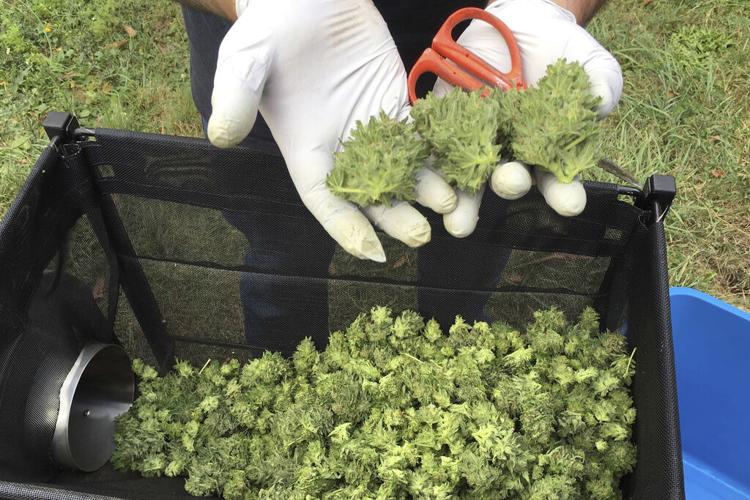
On Thursday, the Alabama Cannabis Industry Association (ACIA) announced that it has formed an advisory board. Chey Garrigan is the founder and Chief Executive Director of the Alabama Cannabis Industry Association. Garrigan said in a statement that she is “thrilled to introduce” the Advisory Board, which is comprised of industry leaders committed to shaping the future of cannabis consumption and advocating for responsible use. “The Advisory Board brings together experts from various fields, including government affairs, scientific research, manufacturing, brands, and communications, forming a diverse and influential group that will effectively represent the interests of Alabama’s rapidly growing cannabis industry,” Garrigan stated. The inaugural board members include: Akele Parnell began his career as a business attorney focusing on healthcare matters, but his interest in the highly regulated cannabis industry led him to explore opportunities within the sector. Parnell has a master’s degree in public health and a law degree from Washington University in St. Louis. Antoine Mordican is a master engineer and hemp cultivation expert. Antoine has developed a signature method for growing premium cannabis using hydroponics. Mordican is the founder of Native Black Farm, a certified hemp-growing farm in Birmingham, Alabama. Mordican has a degree in engineering. Andrew Farrior is the Managing Partner at Digital Venture Partners (DVP). He brings over a decade of expertise in marketing, communications, and project management to the Advisory Board. DVP is one of the few minority-owned portfolio companies in the United States and is focused on bridging mainstream culture with the evolving cannabis industry. Through strategic collaborations with prominent brands and platforms, DVP develops exceptional cannabis content and branding to enhance cannabis awareness among diverse mainstream audiences. “We are honored to have such distinguished professionals on board,” said Garrigan. “Their expertise and commitment will be instrumental in driving positive change and shaping the future of the cannabis industry in Alabama. Together, we are dedicated to advocating for decriminalizing medical cannabis, promoting economic development, and ensuring equitable opportunities for all. The ACIA looks forward to working closely with its Advisory Board members to develop strategic initiatives that promote responsible cannabis consumption, elevate industry standards, and foster education and awareness.” The ACIA was created in 2020 to advocate for the Alabama hemp industry. The ACIA was instrumental in the passage of the bill to legalize medical cannabis in 2021. That bipartisan legislation created the Alabama Medical Cannabis Commission (AMCC), which is tasked with regulating and licensing medical cannabis within the state of Alabama. The awarding of medical cannabis licenses to a limited number of businesses is currently on hold through October, pending an independent review of the licensing after some scoring discrepancies were uncovered, The ACIA announced recently that their annual conference had been postponed to October due to the recent events with the licensing being delayed. Possession of marijuana plants or raw marijuana plant material remains illegal in Alabama and will remain so, with businesses licensed to grow and process medical marijuana. To connect with the author of this story or to comment, email brandonmreporter@gmail.com.
Black entrepreneur is one of 90 applicants formally being considered for Alabama’s medical cannabis licenses

The Alabama Medical Cannabis Commission voted on Thursday to formally consider 90 applications submitted – this is down from the more than 600 requests for applications received in October. The properly filed, amended, and corrected applications will proceed to the review, evaluation, and scoring process. “We are excited to be one step closer to program implementation,” explained Commission Director John McMillan. “Now that we have our official slate of applicants, the sixty-day window to review applications has started.” One of those applications was from Native Black Cultivation LLC, a black-owned medical cannabis cultivation company. The company issued a statement expressing pride for receiving this consideration from the Commission. “This is a significant milestone for our company, and we are thrilled about the potential to bring our unique cannabis products to the people of Alabama,” the company said in a statement. “We believe that diversity and inclusion are essential in the cannabis industry, and we are proud to be a black-owned business that is paving the way for others to follow. Our team is committed to using our expertise and experience to provide safe, effective, and high-quality cannabis products to the people of Alabama.” The company is asking the public to voice their support for their application. “We would like to take this opportunity to encourage everyone to participate in the 30-day public comment window,” Native Black Cultivation LLC continued. “Your comments and feedback are crucial in helping the Alabama Medical Cannabis Commission make an informed decision regarding our licensing application. At Native Black Cultivation, we are passionate about creating a better future for ourselves and our community. We believe that cannabis can be a powerful tool for promoting health and wellness, and we are dedicated to making it accessible to all. We are proud of our unique approach to cannabis cultivation and look forward to bringing our products to the people of Alabama. Thank you for your support, and we look forward to serving our community with safe and effective medical cannabis.” Native Black Cultivation was founded by Antoine Mordican – an engineer. Mordican presently runs a hemp-growing operation in Bessemer. The application for medical cannabis business licenses closed on December 30, 2022. Timely filed applications were reviewed by AMCC for deficiencies, and applicants were given notice of any deficient items in their applications. Applicants were required to file a proposed corrected application or request more time for filing such an application by March 3, 2023. Additionally, applicants could file a petition to amend items in their application. Applicants who were granted an extension of time to propose deficiency corrections, and those filing a proposed amended application were required to file their corrected and/or amended applications by March 24, 2023. The Commission will consider 12 applications for marijuana cultivator licenses, 11 applications to be processors, 18 applications for marijuana dispensaries, nine for secure transporter licenses, two state testing laboratory applications, and 38 integrated facility applications. Applicants were not allowed to hedge their bets by applying for multiple application types. The Commission may award up to 12 cultivator licenses, 4 processor licenses, 4 dispensary licenses, 5 integrated facility licenses, and an unspecified number of secure transport and state testing laboratory licenses. Chey Garrigan is the President and Founder of the Alabama Cannabis Industry Association. “We are very proud of Antoine and are thankful for his knowledge and leadership,” Garrigan said. “We value his friendship and look forward to working with him and the other applicants as we move forward in this process.” The Commission will accept public comments until May 14, 2023. Alabama could have legal medical marijuana available by late this year. To connect with the author of this story or to comment, email brandonmreporter@gmail.com.
Alabamians can apply for a Medical Cannabis business license starting Thursday
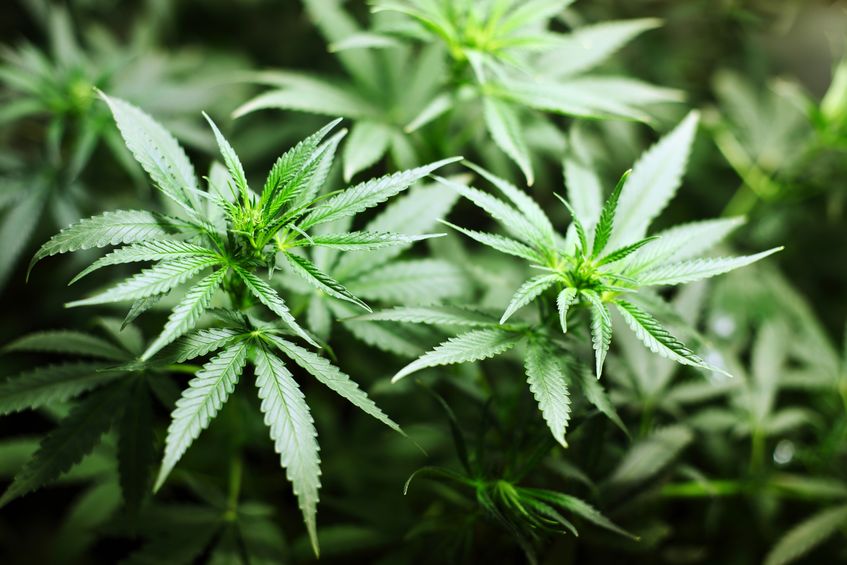
On September 1, the Alabama Medical Cannabis Commission will allow interested Alabamians to download the forms to apply to be a licensed medical marijuana grower, transporter, processor, dispensary operator, or vertical integrator. Alabama Today spoke with Antoine Mordican, who hopes to be one of the medical cannabis growers on Monday. “The commission published their fees on their website today,” Mordican said. “The fee ($40,000 to be a grower/cultivator) is about what I expected.” Cultivator licenses are $40,000 a year, integrator $50,000, processor $40,000, secure transporter $30,000, and state testing laboratory $30,000. The fee must be paid annually, and the number of licenses is strictly controlled by the state. A non-refundable application fee of $2,500 must also be paid to the Commission just for applying for a license. Mordican, an engineer, said that his facility would be all indoors and use hydroponics. “We will use LED lighting throughout (to grow the plants), and there will be sensors in every room so that the plants get the water that they need.” “There will be no wastewater,” Mordican continued. “There will be a water recirculation system so that it all gets used by the plants.” Mordican said that he is still in the “raising capital” phase of this venture but explained he has been growing hemp for going on three seasons, so all of his processes for growing cannabis are currently in use by him in the real world. However, the marijuana growing facility would be new and a custom build from the ground up. Mordican said that “building relationships” is preferable to him over simply finding financiers who want to make a fast buck in the medical cannabis industry. Medical marijuana is harvested from the buds, meaning that the rest of the plants become waste products. Mordican said that he hopes to be able to recycle the excess plant material as hempcrete or other industrial applications. “There is no composting,” in Mordican’s system because hydroponics do not require a soil medium, Mordican explained. Mordican’s facility will be in Jefferson County. County Commissions and city governments will have a say on whether or not marijuana cultivation will be allowed in their jurisdictions. Chey Garrigan is the executive director and founder of the Alabama Cannabis Industry Association. “We are working with producers on understanding the licensing process,” Garrigan said. “Potential producers need to understand that there is going to be some upfront costs involved with applying for a license.” The Commission has estimated that it will be late 2023 at the earliest before Alabamians will be able to purchase Alabama-grown medical cannabis, as the licensing process will take 11 months, and then the licensees still have to build their facilities. “The important thing to us is that Alabamians with a legitimate medical need can lawfully get the help that they need,” Garrigan said. The Alabama State Legislature passed medical cannabis legislation in the Spring of 2021 and tasked the Alabama Medical Cannabis Commission with regulating the new industry. According to the commission’s latest timeline, applicants have until October 17 to request application forms. According to recent polling, marijuana has surpassed cigarettes and tobacco use, reaching a new all-time high. 16% of Americans report having used marijuana in the last week versus just 11% for cigarettes. Cigarette usage dropped from 16% last year to 11% in the most recent survey, while marijuana has increased from 12% use to 16% in the same time period. Marijuana, whether used medically or recreationally, remains illegal federally. To connect with the author of this story, or to comment, email brandonmreporter@gmail.com.

